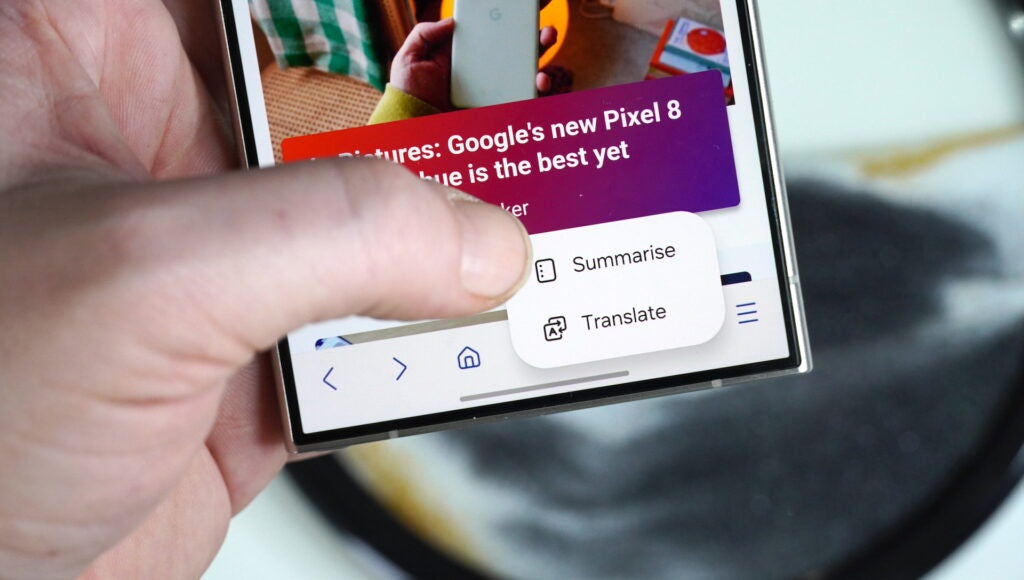OPINION: Google’s Pixel range has always focused on AI capabilities. Long before Galaxy AI and Honor Magic Portal were conceived, Pixel phones were already transcribing recordings, taking calls on your behalf and providing some of the best photo editing capabilities on the market.
And, despite the massively increased competition from the best smartphones in 2024, Google still manages to be at the top of the bunch with its genuinely useful approach to on-device artificial intelligence.
Take Samsung’s Galaxy AI for example; it does offer some handy features, like on-device translation, summarising websites and rewriting text messages, but let’s be honest, these aren’t going to change your day-to-day life all that much.
They’re niche features for rather niche situations, like transcribing interviews or speaking to people in other languages.
The newer additions, including AI Portrait Studio, veer even further into the gimmicky zone. Yes, it looks fun, but is it actually helpful? That’s very much up for debate.

Save £200 on the Samsung Galaxy S24 Plus
Amazon is offering a huge £200 saving on the Samsung Galaxy S24 Plus.
- Amazon
- Save £200
- Now £799
The same can be said for Honor’s Magic Portal; I like the idea of dragging content onto app icons and getting AI to automatically figure out what I want to do with that content (i.e. dragging a photo onto Google to image search), but in all my months of using Honor devices, I can’t say I’ve used it more than a handful of times – not least because it still doesn’t have universal app support.


Now, Apple Intelligence could deliver a more interesting spin on AI, with a smarter Siri, ChatGPT integration and more, but I’ll hold back my thoughts until I get to experience it for myself.
Still, broadly speaking, it seems that smartphone makers are focusing more on AI features that look fun and will help the phones sell, rather than putting the AI smarts to use in more genuinely useful ways – like Google has with the Pixel 9 collection.


That starts with a wholly more capable virtual assistant in the form of Google Gemini, but don’t think this is the same experience as you’ll get from the Gemini app on other Android phones. Nope, the Tensor G4 runs Gemini Nano with Multimodality, a multimodal form of generative AI that can understand not only text but voice and photos.
That means that, in addition to the general knowledge queries and other features that Gemini is known for, it can understand photos you show it – much like ChatGPT. That means you’ll be able to take a photo of a dying plant and ask for advice on how to save it, or even snap a photo of a room and ask for design advice.


It’s also a much more natural experience thanks to Gemini Live, allowing you to have a free-flowing conversation with the virtual assistant when brainstorming weekend plans and the like. It requires a Gemini Advanced subscription, admittedly, but at least you get a year free with the Pixel 9 collection.
It also ties in with other Google apps and services, allowing Gemini to say, notice an anniversary calendar event and recommend local florists, sourced from Google Maps, and it’ll also generate custom weather reports for your local area every morning.
Google’s useful AI smarts can also be found in the form of Pixel Screenshots. The idea is simple; simply take a screenshot of information you might need for later reference – hotel booking details, important emails, etc – and use Gemini to find that information when needed, rather than scrolling through an endless list of screenshots.
I’m also a big fan of the idea of Call Notes, which uses on-device AI to listen in on phone calls and provide you with a summary once the call is done. While not useful in every scenario, it sounds invaluable if you’re speaking with customer services, booking a doctor’s appointment or making plans with a friend.


Of course, there are also more fun/gimmicky elements like Pixel Studio, allowing you to generate images from text, and the ability to add people to group shots with Add Me might be handy, but these aren’t the big hitters of Google’s new AI feature set.
Regardless I can envision Pixel 9 users making use of the vast majority of Google’s AI features frequently – more so than much of the smartphone-based AI functionality we’ve seen until this point, anyway.
